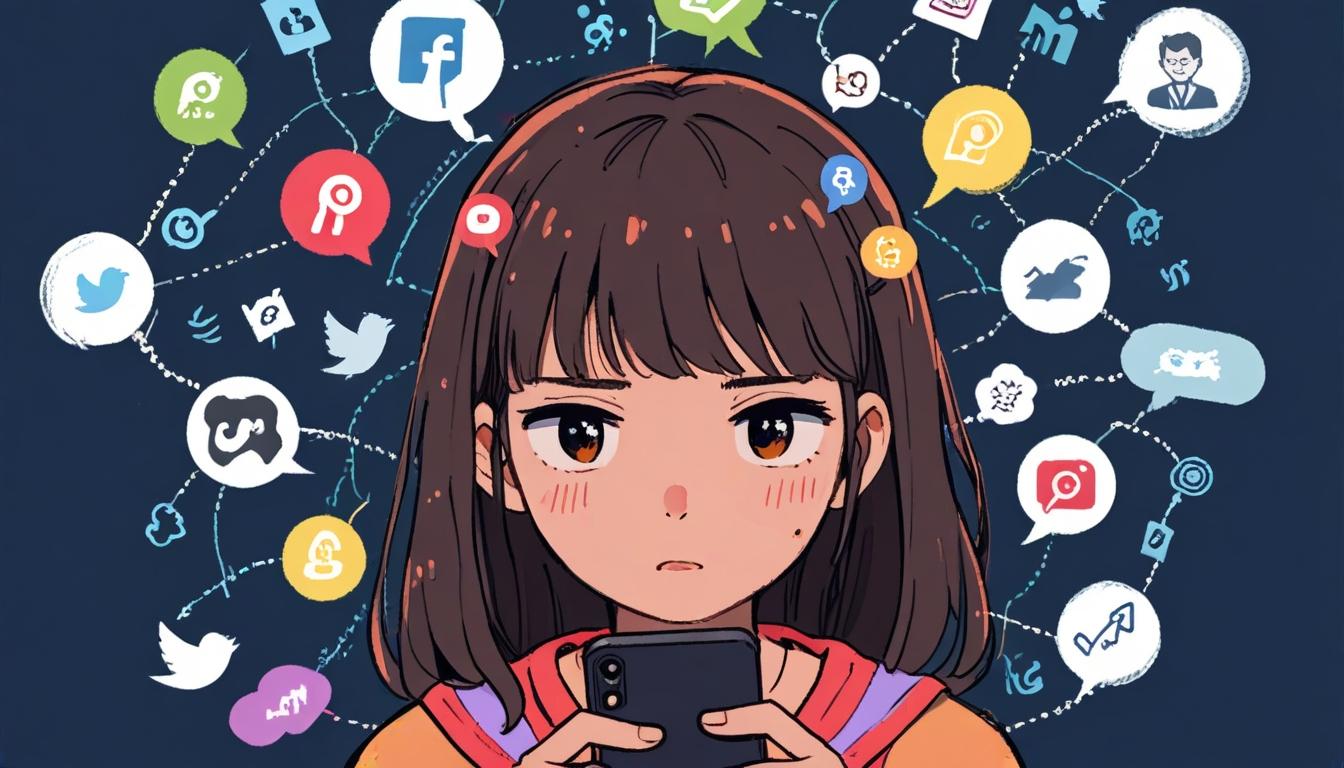Beckii Flint, a former ‘kidfluencer’ who rose to fame as a teenager, is advocating for a UK code of conduct aimed at protecting children involved in commercial online content. Flint, now 29, became a YouTube sensation at the age of 13, particularly noted for her dance videos set to Japanese pop music. Reflecting on her experience, she shared with ITV News her ongoing struggles with anxiety and stress, stemming from her rapid rise to fame and the pressures associated with it.
The proliferation of children on social media has become increasingly common, with statistics indicating that 77% of children aged eight to 17 now have online profiles, and a significant number of younger children aged five to seven also engaged in social media activities. A recent survey by The Harris Poll reported that 29% of today's children aspire to be YouTubers, surpassing traditional dreams such as becoming an astronaut.
The lucrative nature of child influencers is notable, with the UK’s top ten child influencers boasting over 57 million subscribers and a staggering 19.18 billion views across their videos. Financial advisors estimate that child influencers in the UK can earn thousands per post; however, actual earnings can vary considerably based on follower count and engagement rates. In the US, for example, the young influencer Ryan Kaji is reportedly valued at around $100 million, while another child star, Anastasia Radzinskaya, is known to generate approximately $28 million annually.
Flint, who gained significant attention for her videos in Japan, expressed concerns about the impact of being a young influencer, particularly after experiencing both fame and notoriety online. She recounted moments of harassment and unwelcome attention, recalling how certain individuals managed to discover her personal information, including her school. Despite some positive aspects of her career, Flint admitted to regrets over the online content she shared, which has permanently affected her privacy.
"I made decisions when I was very young that have affected my privacy for the rest of my life," she told ITV News. "It’s been difficult for me; I have feelings of anxiety, a lot of like stress has been caused by some situations from when I was young and going viral."
Flint's platform has now shifted towards advocating for more robust protections for child influencers. She is collaborating with marketing agencies and parents to establish a ‘kidfluencer’ pledge, which aims to create guidelines for ethical practices in content creation. Flint critiques existing legislation, saying the Online Safety Act does not sufficiently protect child influencers, particularly regarding their financial earnings and working conditions.
There is currently a lack of clear regulations governing child influencers' work in the UK, despite the government's acknowledgment of the potential exploitation of children in influencer culture. In 2022, a report by the Digital, Culture and Sport Committee called for strengthened legislation to protect children, although actionable measures have yet to be implemented.
In contrast, some US states have instituted laws to safeguard child influencers, including a requirement that a portion of their earnings be held in trust until they reach adulthood. This legislation mirrors protections already established for child actors, aiming to ensure fair treatment in the industry.
Flint’s revelations come in light of increased scrutiny within the influencer landscape, particularly following the Netflix documentary “Bad Influence,” which explores the darker implications associated with child influencers. This documentary highlights several troubling instances, including allegations against Piper Rockelle's mother related to child labour violations and inappropriate treatment of child YouTubers.
Overall, the evolving landscape of child influencers presents a complex interplay of opportunity and risk, prompting calls for clearer guidelines and protections as the industry continues to expand.
Source: Noah Wire Services
